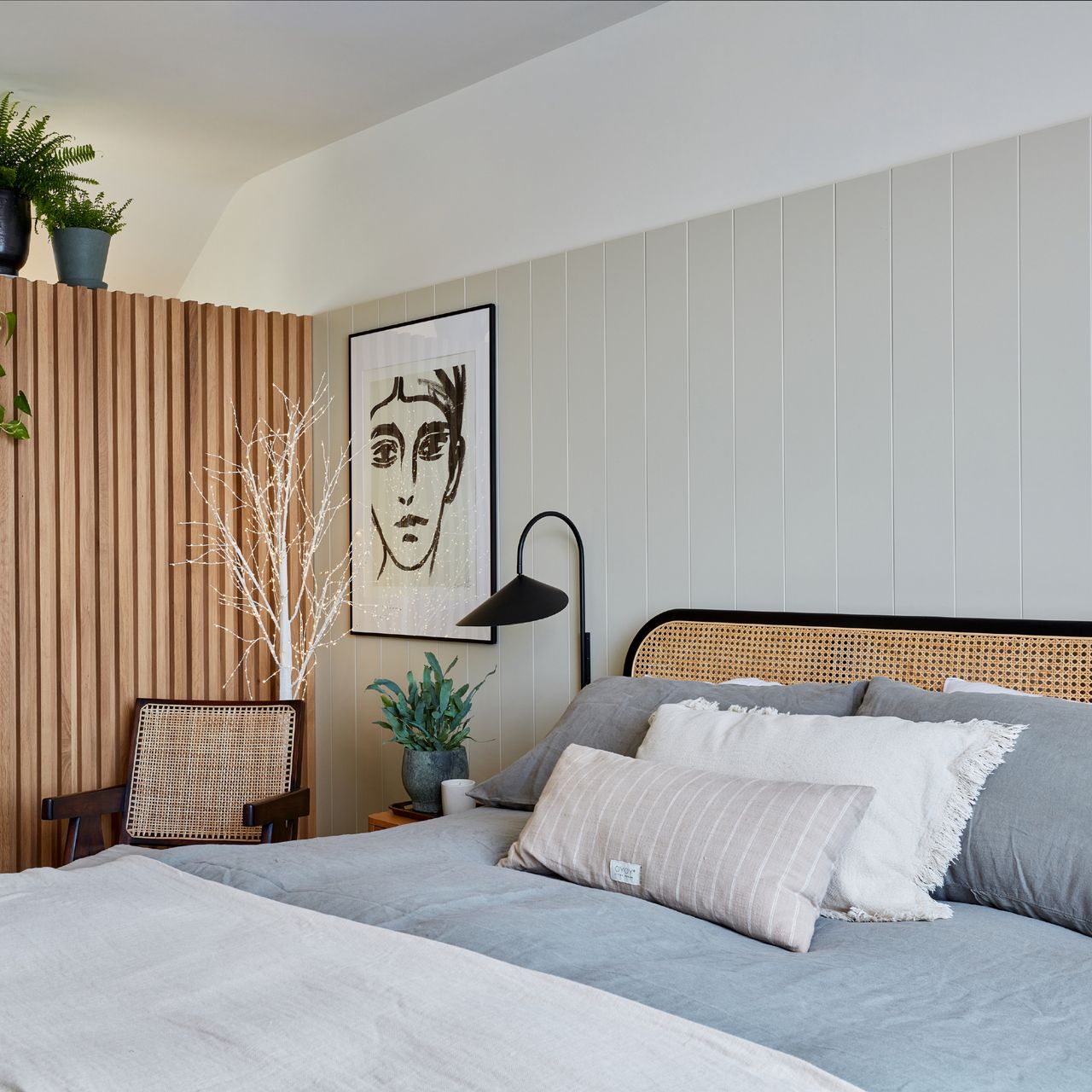
If you’re currently experiencing night sweats or poor sleep related to perimenopause or menopause, switching to the best bedding for menopause can help.
As a woman in my forties, I’ve always found my temperature to fluctuate with my hormonal cycle, and I used to really struggle with waking up due to overheating at night. Whilst my partner slept (annoyingly) soundly, I would regularly wake up sweating and kicking off the covers. That only worsened as I entered perimenopause and hormonal fluctuations became more extreme.
Of course, I'm not alone. Research published by Silentnight found that 83% of perimenopausal and menopausal women suffer from sleep problems. The survey of 1,000 women revealed that 61% experience night sweats and 41% suffer from insomnia, with more than two-thirds of the women surveyed losing an average of two-and-a-half hours of sleep per night.
Whilst the right bedding sadly can't eliminate hot flushes and night sweats, it can help. When I became Ideal Home’s Sleep Editor – and began testing the best duvets, best pillows, and all kinds of different bedding materials as part of my job – I quickly discovered that the synthetic bedding I’d been sleeping under was making my problems with overheating at night a *lot* worse.
That's because materials like polyester – a very common ingredient in affordable bedding – lack breathability and are very poor at managing the natural temperature fluctuations of our body.
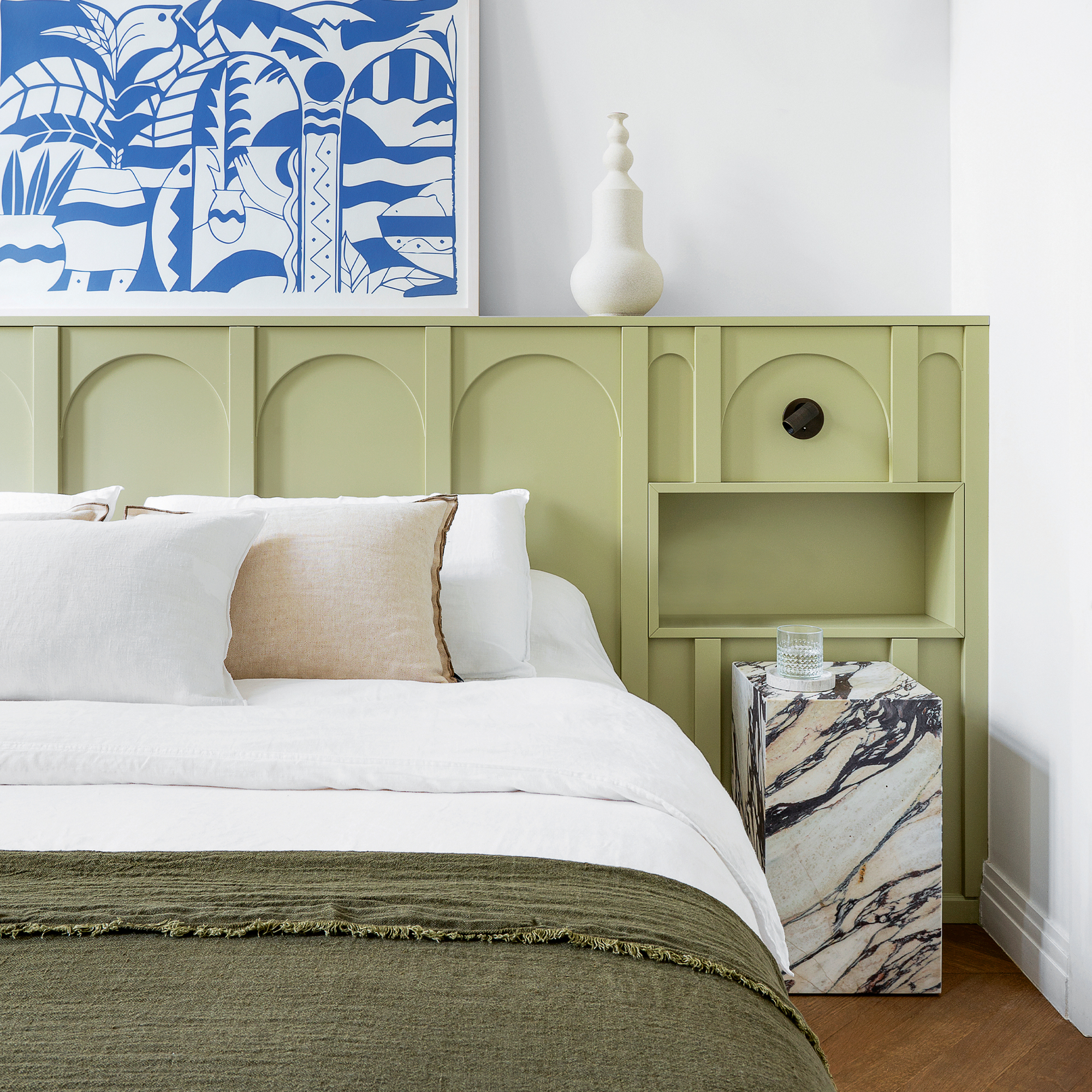
Often dubbed the hidden sleep thief, sleeping on or under polyester is a bit like sleeping with a plastic bag next to your skin; the synthetic material reflects heat and humidity back towards the sleeper rather than letting it dissipate away from the body, often resulting in that 'boil in a bag' sensation that had me kicking off the sheets at 3am.
When I switched to natural bedding materials – such as a wool duvet, pure linen or cotton bed linen, and ditched my memory foam mattress for one packed with natural materials such as wool, cotton, and hemp – I found that my bed was suddenly far more breathable.
That breathability meant a cooler sleep setup, and I found that my body was able to regulate its temperature far better, resulting in a steadier temperature throughout the night and therefore a less disrupted sleep.
Based on my testing experience and the advice of sleep and fabric experts, this is the best bedding for menopause, including the materials to invest in and those to avoid.
Best bedding for menopause
Wool bedding
As far as I’m concerned, wool is a miracle fibre that everyone – menopausal or not – needs in their life.
Swapping my polyester microfibre duvet for a wool duvet, and adding a wool mattress topper and mattress protector to my synthetic memory foam mattress (before eventually investing in a natural mattress) are two of the bedding swaps that have made the biggest positive impact on my sleep.
Why? Because of wool’s innate breathability and excellent temperature regulation compared to alternatives such as polyester or feather and down.
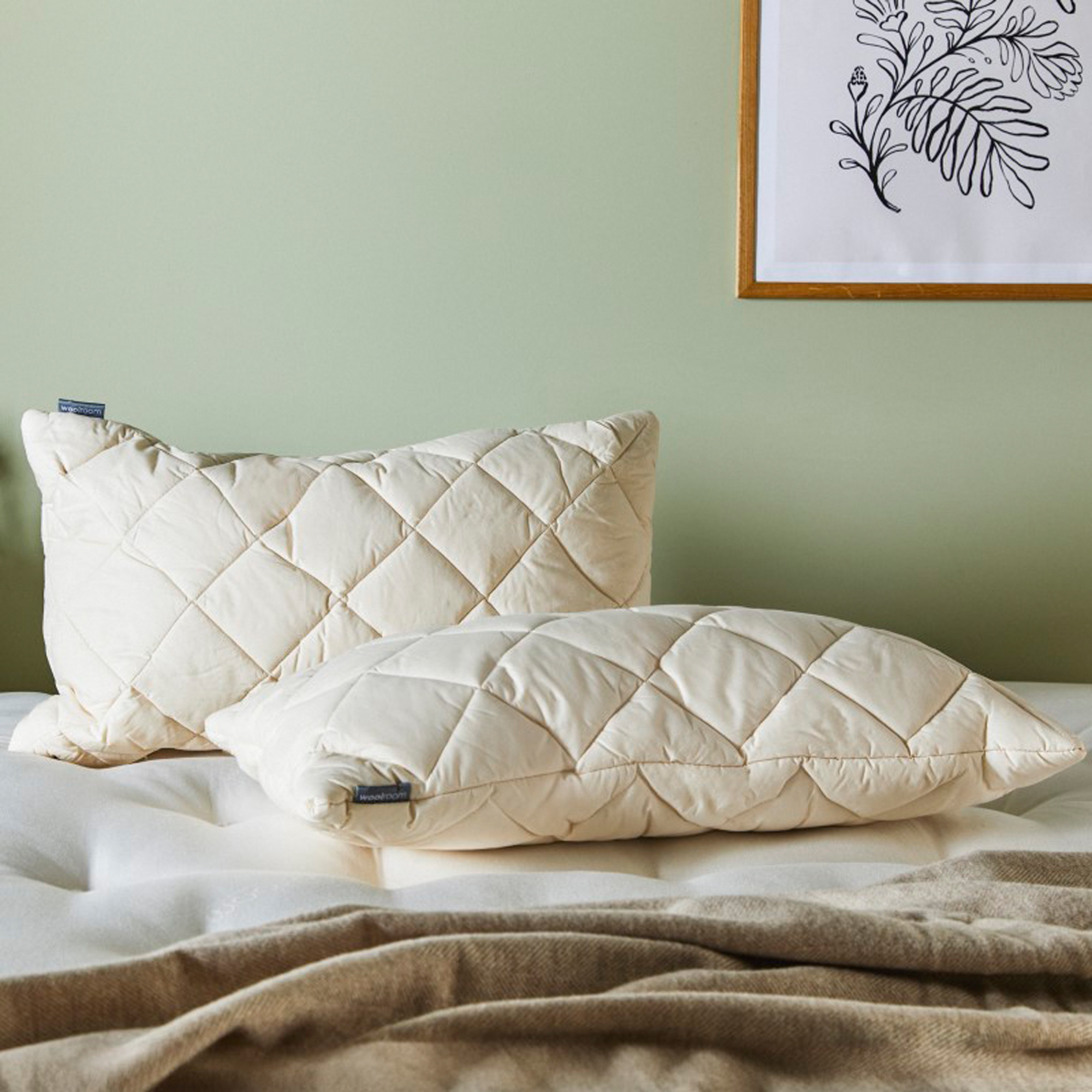
'Being too hot is one of the biggest disrupters of a good night’s sleep for women experiencing the menopause,' agrees sleep expert and managing director of Woolroom, Chris Tattersall. 'Sleeping on and under fibres such as a memory foam mattress or with feather and down or synthetic bedding traps in heat and will only exacerbate night sweats and hot flushes.'
In contrast, 'wool’s natural properties make it an excellent choice for temperature regulation, as the breathability of wool allows air to circulate, preventing heat build-up and promoting a cooler sleep environment,' explains Chris.
'Wool is also highly absorbent and helps wick moisture away from the body, absorbing any perspiration during the night, making it the perfect for choice for night sweat sufferers.’
It’s no exaggeration to say that swapping to wool bedding was game-changing for me. This is what I added to my bed, and what I now recommend to anyone looking to improve their sleep setup.
The downside of a wool duvet is that most options can't be washed. However, Woolroom's Deluxe Washable Wool Duvet is an exception to that rule. It's the duvet I have on my own bed all year round and it's ideal for hot sleepers or those suffering from night sweats as it's breathable, temperature-regulating, and can be machine-washed. Unfortunately, it's not cheap, but I have found it to be worth every penny.
If you need a more affordable option, Slumberdown offers some of the most budget-friendly wool duvets I've tested. This duvet does feel a lot more basic and is a bit stiff and crinkly compared to Woolroom's range, plus, it's not washable, but it still did a great job of temperature regulation, keeping me cosy whilst reducing overheating.
If you're sleeping on a synthetic mattress – either a memory foam mattress or a pocket-spring mattress with a polyester comfort layer – I'd also highly recommend investing in a wool mattress topper to add breathability to your bed. Again, this wool topper isn't cheap, but it's a lot cheaper than a new mattress. I also found the Woolroom Deluxe Washable Wool Mattress Protector made a significant difference to temperature regulation as a more affordable alternative.
Linen bedding
If you're looking for a cooler sleep, what's inside your duvet isn't the only thing to consider. I found that choosing different materials for my duvet covers and pillowcases also made a big difference in reducing my night sweats.
If you're pondering where to buy bedding, you'll tend to find the most affordable options are made from polyester or polycotton. This fabric is easy to wash and budget-friendly, but, as may be becoming clear by now, polyester equals a sweaty sleep.
Instead, I found that natural bedding materials like linen were the key to breathability and better temperature regulation.
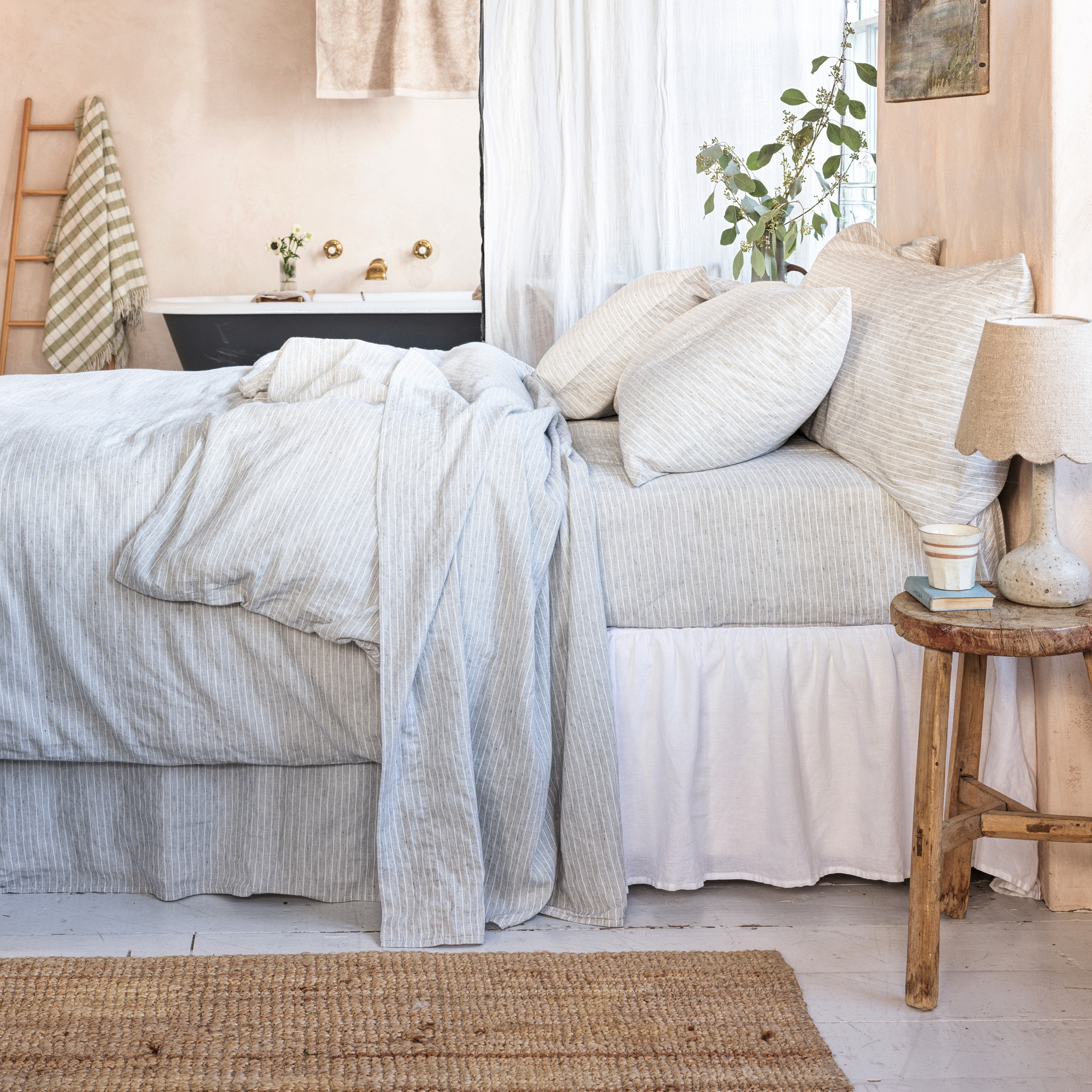
‘Linen is ideal for regulating your body temperature,' explains fabric technologist and founder of The Fabric Consultancy, Kirsty Wilson. 'It's breathable with a high air-permeability rating yet heat conductive.'
In simpler terms, that means 'linen is naturally breathable and great at regulating temperature,' explains Jessica Hanley, founder and CEO of Piglet in Bed, 'that means it keeps you cool in the summer and warm in the winter.'
The best linen bedding isn't cheap, but again, compared to polyester or polycotton bedding, this material has made a huge difference to my sleep and helped to reduce my night sweats considerably.
As may be becoming clear by now, natural materials sadly aren't as affordable as synthetics, but at £95 for a double duvet set that includes a duvet cover and two pillowcases, this M&S bedding set is some of the most affordable linen bedding I've found.
Soak & Sleep is another great option, offering a wide range of great quality linen bedding, from fitted sheets to pillowcases, and duvet covers in a wide range of sizes. I found this French linen super soft and very breathable.
If you want to push the boat out, then Piglet in Bed offers the best coloured and patterned linen bedding in the business. Its linen is thicker than the other two options, but no less breathable, and it's a great option if you're looking for winter bedlinen.
Cotton bedding
Cotton is another naturally breathable material that makes a great choice of bed linen for anyone menopausal.
As Kirsty explains, 'cotton’s absorbency makes it perfect for bedding. Cotton fibre will absorb 7-11% of its weight in moisture. That means if you do become hot in bed or have night sweats, cotton will absorb that moisture and take it away from the body, leaving you feeling cool and comfortable.’
'Cotton or linen bedlinen is a great option to pair with a lightweight duvet,' agrees sleep expert Chris. 'These materials are breathable and moisture-wicking, they ‘breathe’ by absorbing the moisture away from your body and releasing it into the air, meaning you stay dry and comfortable all night long.'
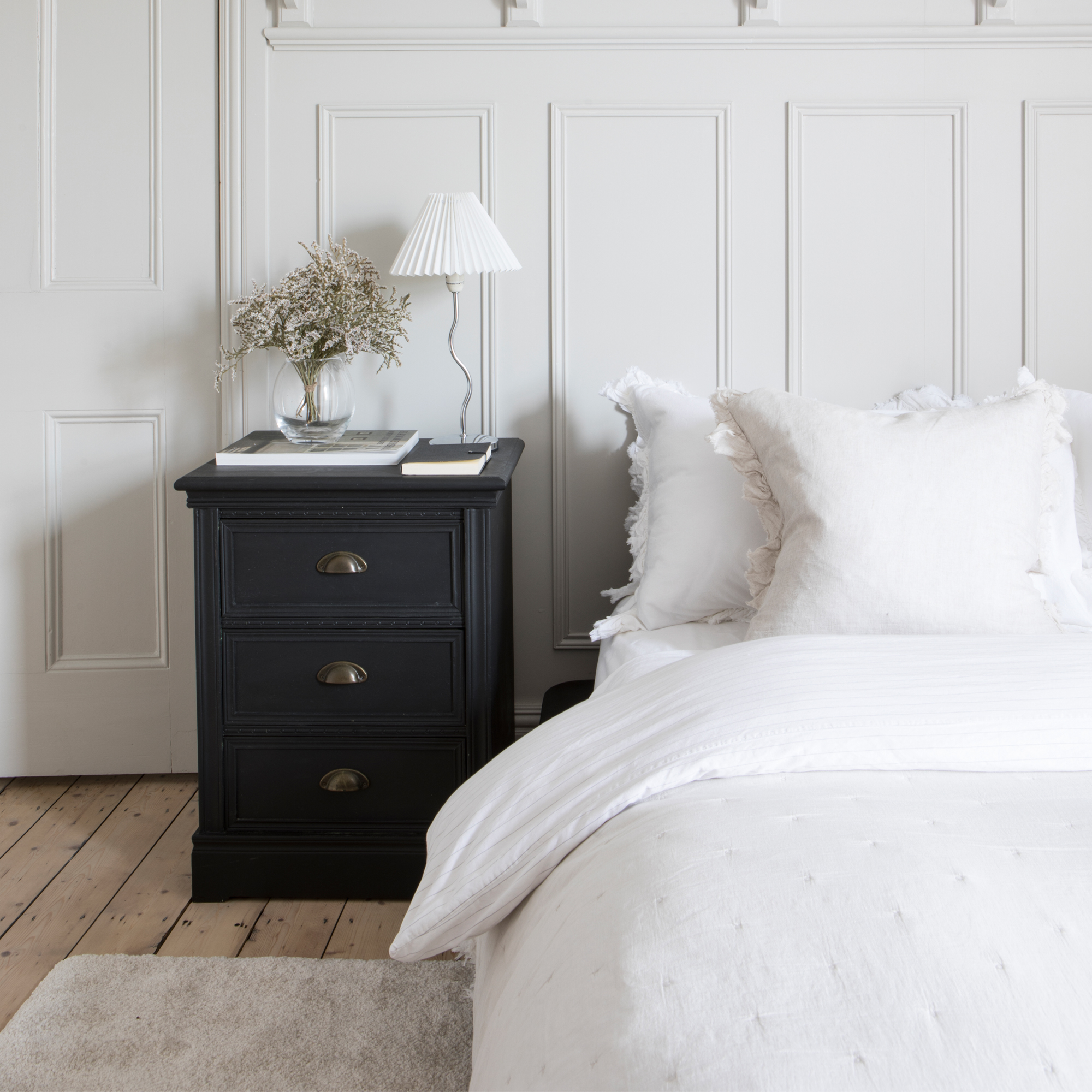
The one point I'd add is that I've found the thread count of cotton does impact its breathability. Whilst you may think a higher thread count means better quality, it also means more tightly woven fibres, which reduces air flow. Instead, I opt for a lower thread count for better breathability, which experts agree is around a 200 thread count.
Also, make sure you're buying pure cotton, and not 'polycotton', which has polyester mixed in. Below are three of my top recommendations for 100% cotton bedding.
This pure cotton bedding set is one of the most affordable 100% cotton duvet sets I've come across. It's actually 180 thread count, so it's a little less luxurious than a 200 thread count or higher, but it's breathable, affordable, and comes in over 40 colour options.
Finished with an elegant piped edge (which you can buy in either black, grey, or white), this bedding looks effortlessly stylish while still offering all of the benefits of 200 thread count 100% cotton percale.
For something more luxurious, this 200 thread count Egyptian cotton bedding from John Lewis is breathable, and those longer, finer Egyptian cotton fibres mean extra softness that will make climbing into bed a joy.
Why does menopause impact sleep?
Wondering why perimenopause and menopause cause so many sleep issues? As Dave Gibson, sleep expert and founder of The Sleep Site explains, ‘the steady loss of progesterone and oestrogen during menopause can have a significant impact on sleep.'
'Firstly, it’s harder to get to sleep and stay asleep as progesterone has a soporific effect. This is compounded by the reduction in the production of melatonin (our sleep hormone) during this time. Then there are the dreaded hot flashes triggered by adrenaline surges because of oestrogen loss,' explains Dave.
If you're suffering from menopause-related lack of sleep, you probably don't need me to tell you why this change in sleep pattern isn't ideal. But in case you're in any doubt, Dr Naomi Potter, GP, psychologist, and menopause expert at Menopause Care is happy to explain.
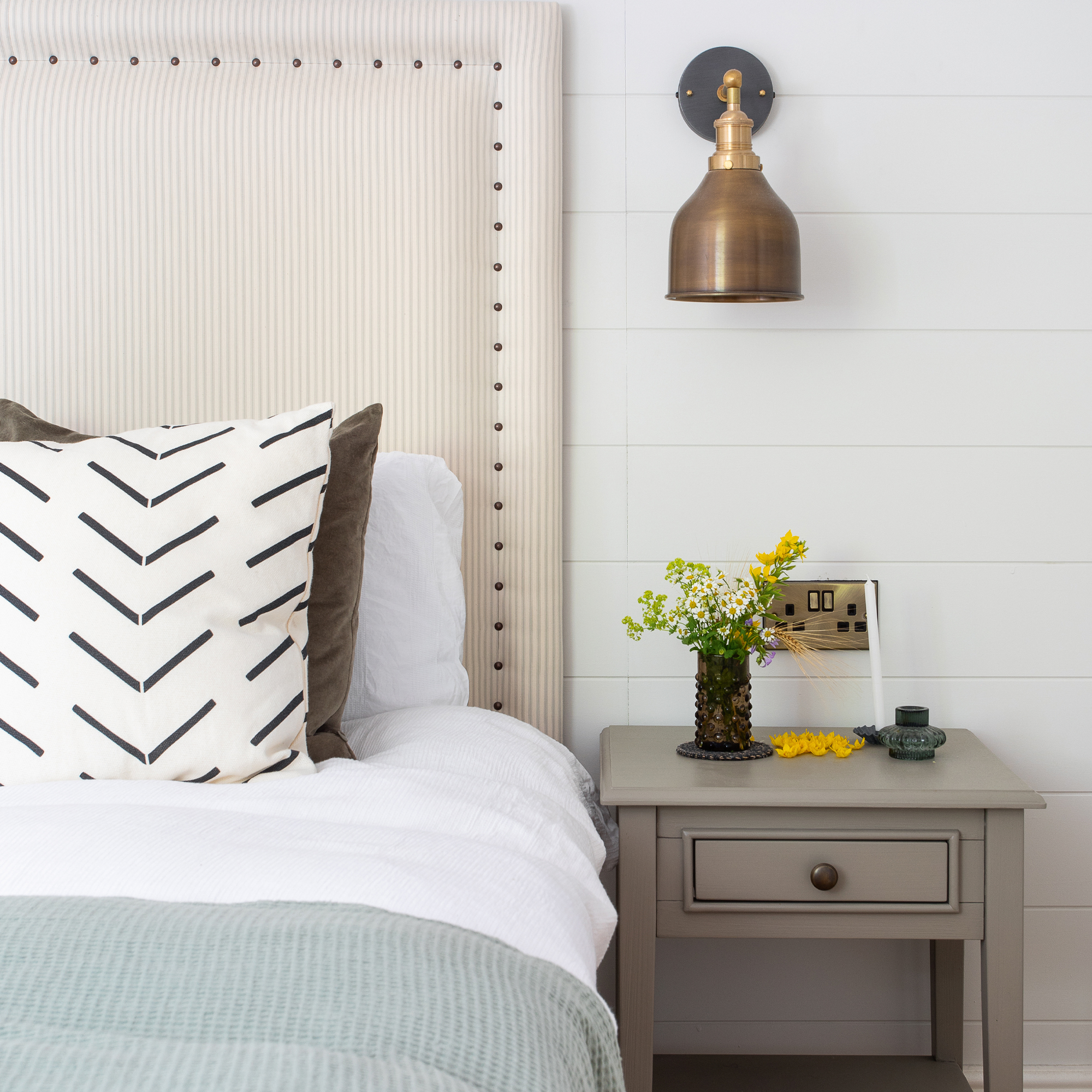
‘Good quality sleep is a vital element of our health and wellbeing,' says Naomi. 'It's arguably the most important of all the health pillars. A lack of sleep – for example, four to five hours a night instead of seven to eight – can have a negative impact on brain function. It can cause symptoms such as brain fog and memory difficulties.'
'Poor sleep can also impact mental health and mood, which is often vulnerable during the menopause. Women with poor sleep during menopause are two to three times more likely to experience depression.’
All the more reason to pull out all the stops to help combat the effects of menopause.
FAQs
What is the best sheet material for menopause?
If you're looking for the best sheet material for menopause look for sheets made from natural materials such as pure cotton or pure linen sheets. These materials offer great breathability and good temperature regualtion. Avoid synthetic sheets like polyester or polycotton which lack breathability and offer poor temperature regulation.
What is the best pillow for night sweats?
When it comes to choosing a pillow, finding one that's comfortable is the most important factor, as your preferred sleeping position and body frame significantly impact comfort.
However, if your current pillow is making you too hot, I've found that a wool-filled or feather and down-filled pillow are the coolest options, as these fibres have the best breathability so don't make your head hot in the night.
But, if you sleep on your side or prefer a firmer pillow, look for one with cooling properties. And, add a pillow protector which is more easily washed and will help protect your pillow from the yellow stains sweating can cause.
If you like a squishy pillow, I found this two-pack of duck feather and down pillows from M&S offers good value (for feather and down), and to sleep far cooler than any other pillow filling I've tested.
I found this ergonomic pillow super comfortable for back and side sleeping. Considering its made from high-density foam, I also found it slept much cooler than most other synthetic options. Plus, it comes with a 14 day sleep trial to allow you to test for yourself.
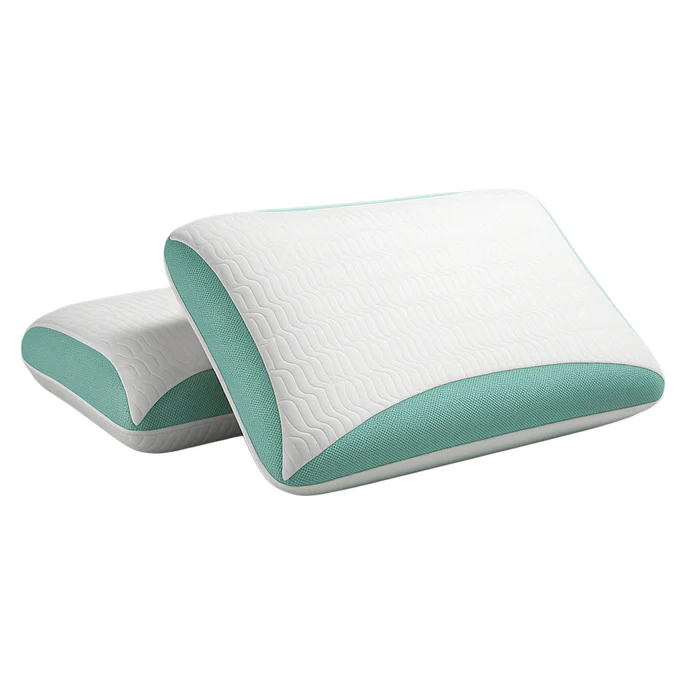
If you love the feel of memory foam but don't like its heat-trapping tendencies, this REM-Fit pillow incorporates cool gel-infused memory foam for better temperature regulation during sleep.







